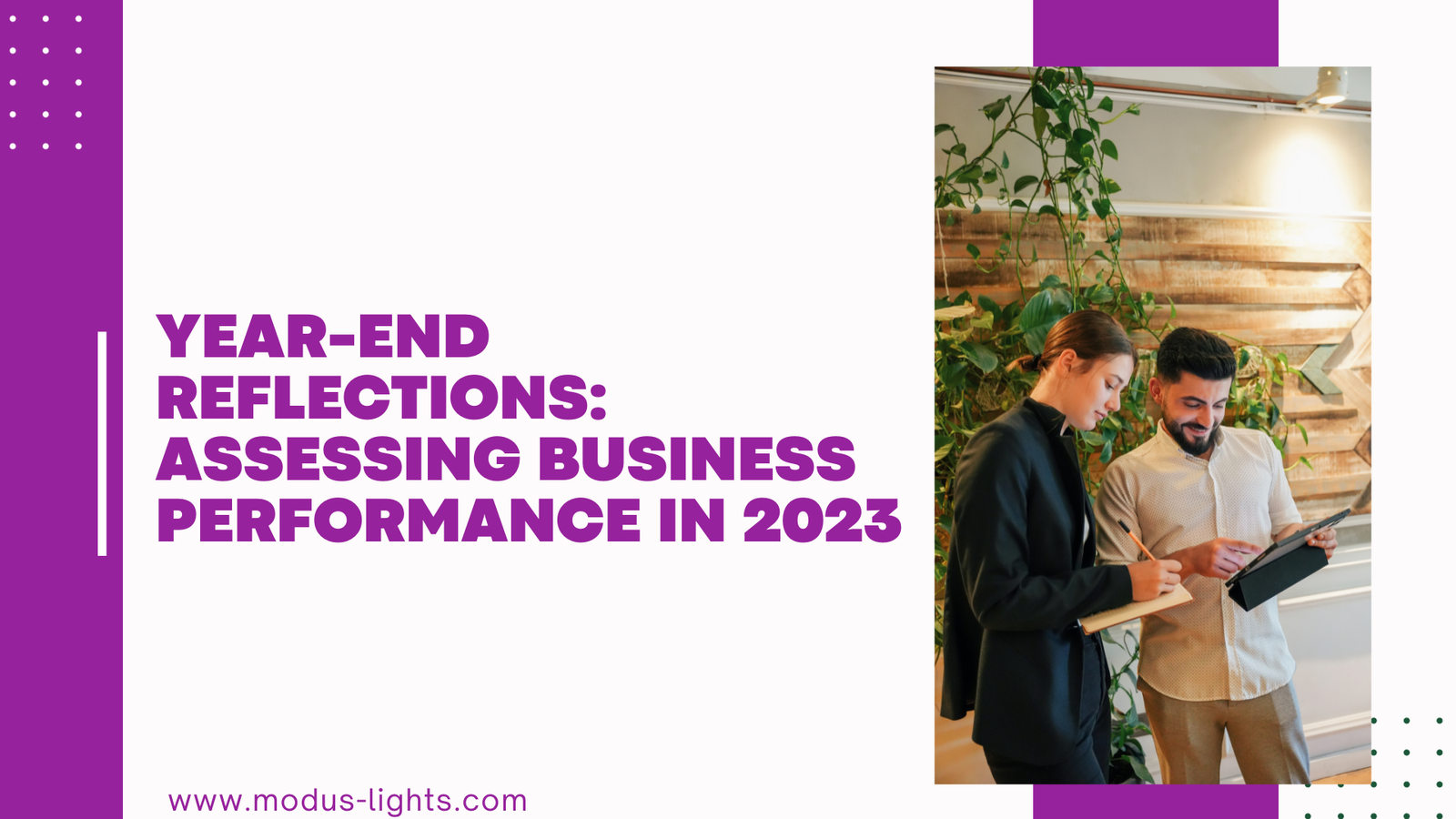
As the year draws to a close, it’s a natural time for businesses to pause, reflect, and evaluate their journey over the past twelve months. 2023 has been a whirlwind of challenges and opportunities for many organizations. In this blog post, we delve into the importance of year-end reflections and offer insights into assessing business performance for a more prosperous 2024.
1. Setting the Stage: Understanding Your Business Landscape
Before diving into assessments, it’s crucial to understand the broader business landscape that shaped 2023. Factors such as market trends, economic shifts, technological advancements, and regulatory changes have all played significant roles. By acknowledging these external influences, businesses can contextualize their performance metrics more effectively.

2. Key Performance Indicators (KPIs): Metrics that Matter
Assessing business performance begins with a comprehensive review of Key Performance Indicators. These could range from financial metrics like revenue growth, profit margins, and cash flow to operational metrics such as customer satisfaction scores, employee retention rates, and productivity levels. Analyzing KPIs provides a quantifiable measure of success and areas needing improvement.

3. Celebrating Wins: Recognizing Achievements and Milestones
While it’s essential to identify areas for improvement, it’s equally important to celebrate achievements. Reflect on the milestones your business has reached in 2023. Whether it’s launching a successful product, entering a new market, or achieving a record-breaking sales month, acknowledging these wins boosts morale and motivates teams for the year ahead.

4. Learning from Challenges: Turning Setbacks into Opportunities
No business journey is without its challenges. Whether it’s supply chain disruptions, operational inefficiencies, or competitive pressures, setbacks offer valuable learning experiences. Reflecting on these challenges and identifying root causes can pave the way for strategic improvements and resilience-building strategies in 2024.

5. Stakeholder Feedback: Listening to Voices that Matter
Year-end reflections should not occur in isolation. Engaging with stakeholders, including customers, employees, suppliers, and investors, provides invaluable insights into your business’s performance. Surveys, feedback sessions, and one-on-one conversations can uncover perspectives that may not be evident through data alone.

6. Strategic Planning: Charting the Course for 2024
Armed with a comprehensive understanding of your business performance in 2023, the next step is strategic planning for the upcoming year. Setting clear objectives, defining actionable strategies, and allocating resources effectively will position your business for success in 2024.
Conclusively, Year-end reflections serve as a vital catalyst for growth, offering businesses an opportunity to celebrate achievements, learn from challenges, and set the stage for future success. As we bid farewell to 2023, let’s embrace the insights gained and leverage them to navigate the exciting opportunities that lie ahead in 2024. Remember, reflection is not just about looking back; it’s about preparing for a brighter future.


